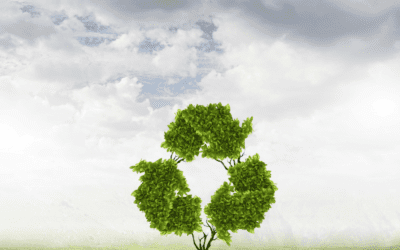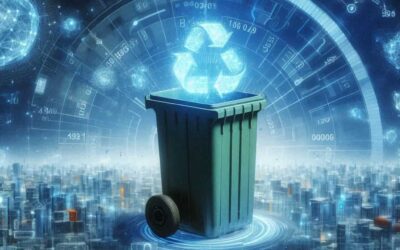Better waste management is fundamental to our approach to the climate emergency. As long as waste is poorly managed, our waste will continue to contribute to the production of greenhouse gas – and therefore accelerate the climate emergency facing us all.
ISB Global was founded to make a significant difference to the way the world deals with waste. It may sound like a grand ambition – but change in this area must be made on a big scale if it is to have an impact.
Our mission remains to deliver greater productivity for waste management companies and waste producers, helping to promote a circular economy model, where less ‘new’ material is mined from the earth and more is done to reduce waste, reuse and recycle materials.
While we know that consumers and businesses all need to contribute to this goal, the role of waste and recycling companies is critical. In order to successfully drive a circular economy, it must be commercially viable for businesses operating in the industry. And that’s where we come in.
Cutting-edge technology for sustainable waste management
Historically, the waste and recycling management industry has been a fragmented sector. Companies do things very differently, with emphasis on a variety of services. It has also been reactive in many ways, rather than proactive, and this can mean that companies struggle with costs and efficiencies. Often, it means that these businesses have been unable to take the next steps towards circular operations – exploiting secondary markets, investing in new plants, or finding reuse opportunities that generate additional income.
That’s why we developed our flagship product, Waste and Recycling One (WR1). Our solution is unique, because we supply the entire advanced technical stack. This means that businesses only need to deal with one supplier and one solution – everything is taken care of.
What does WR1 do? It replaces outdated legacy systems, bringing data from disparate sources into a central model. This helps to drive process efficiencies, lets businesses see where they could adapt current operations or introduce new services, and dramatically improves customer service.
So, more efficient, more responsive and more profitable.
How does this help drive sustainability?
We believe that waste and recycling companies have a leading role to play in the global waste industry’s next chapter. For example, simply by having the data to highlight better route planning, companies can save money on fuel and reduce their emissions.
Similarly, adding a secondary market income stream to their businesses means that companies are incentivised to separate and reuse critical materials, which saves them from going into landfill and reduces the need for new mining.
At the CAANZ/SAICA Joint Conference in 2023, our CEO Chris Williams, gave a passionate presentation about the impact of waste, poor waste management and a linear economy on the planet. In the presentation, he explained how better waste management practices can lead to a circular economy approach, which in turn can drive both commercial profitability and environmental change.
Giving waste a profile
While the generation and management of waste (or lack of management) are significant contributors to the climate emergency, waste is often not mentioned by those discussing the problem.
That’s often because there are more attractive, exciting things to talk about. Hydrogen fuel, unmanned delivery drones, electric planes.
At COP26 in 2021, there was little mention of waste management, but encouragingly, at COP27 in 2022, waste had a slightly higher profile. There was a very small breakout group that started talking about better waste management practices and the impact, the whole movement from that linear model to that circular model, keeping stuff out of landfill, started to finally gain a bit of traction.
Commercial organisations are less likely to make changes out of the goodness of their hearts. They are in business to make money, and so it’s often legislative or regulatory requirements that drive the need for better systems and practices.
This is no bad thing. Campaigns from anti-smoking to wearing seatbelts show that sometimes, change requires a stick rather than a carrot. So legislative requirements are needed for all businesses to commit to changing course – not just waste management companies. We help with managing those requirements through smarter technology that helps you meet your commitments and improve your profitability.
You can find out more about WR1 and the way it can help businesses profitably switch to a circular economy model here.






